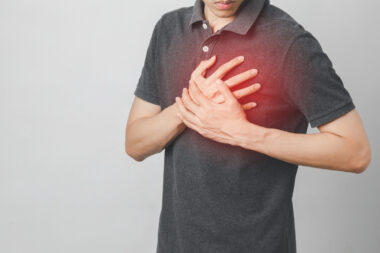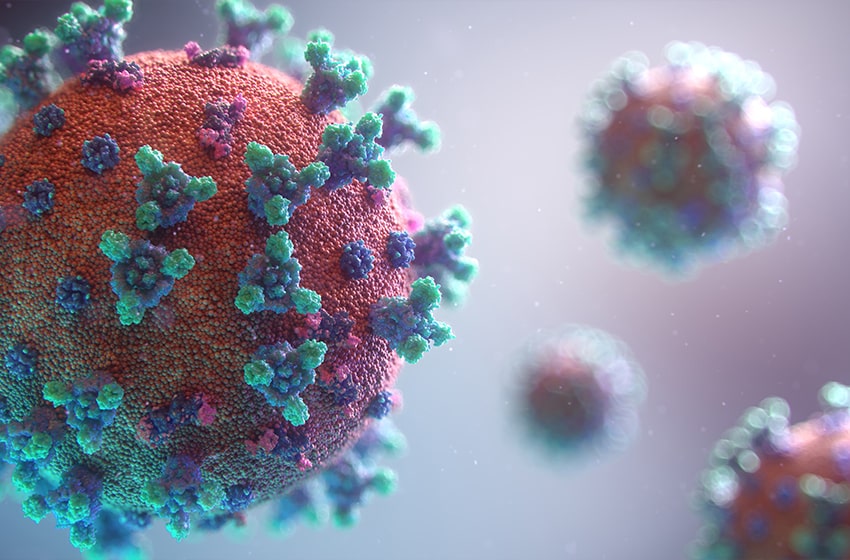Know how to prepare or deal with the ongoing outbreak of Coronavirus disease (COVID-19) during the instances of community spread.
As the number of confirmed cases continues to rise globally, it is crucial for us to be prepared mindfully for each and every possibility.
Many countries around the world have closed their borders and some are even locking down their cities to prevent the COVID-19 outbreak from spreading.
Since the World Health Organization (WHO) officially declared the new Coronavirus (COVID-19) a pandemic on the 11th of March 2020, we need to be deeply concerned about our safety from this viral disease.
Here’s what you need to know
Coronavirus disease (COVID-19) continues to spread worldwide with more than 280,000 confirmed cases and at least 12,500 dead as of 22nd of March 2020.
While face masks are one of the popular remedies people are using for their safety, scientists doubt their effectiveness against the airborne diseases. That means we must follow better safety measures to prevent its transmission.
Let’s have a quick look at what exactly is Coronavirus disease, its symptoms, how it spreads, and what you need to do about it.
According to WHO, Coronaviruses (CoV) are a large family of viruses that cause illness ranging from the common cold to more severe diseases such as Middle East Respiratory Syndrome (MERS-CoV) and Severe Acute Respiratory Syndrome (SARS-CoV) that are transmitted between animals and humans.
Novel Coronavirus (COVID-19 or 2019-nCoV) is a new breed that was discovered in 2019 and has not been previously identified in humans. There are several known Coronaviruses circulating in animals that have not yet infected humans.
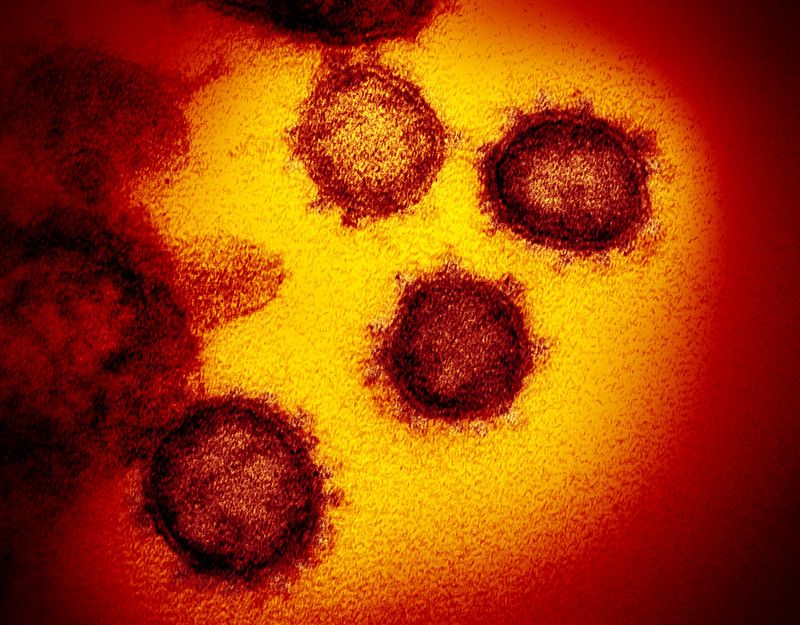
Microscopic Image of Coronavirus (Credit: NIAID-RML)
Common signs of infection include:
- Primary symptoms include fever, dry cough, shortness of breath, runny nose, fatigue, body aches, etc.
- Severe symptoms include high fever, pneumonia, etc.
- COVID-19 usually spreads from close person-to-person contact (within about 1 meter)
- It spreads through respiratory droplets from coughing and sneezing
- It can also spread from touching something that has been contaminated with the virus
- The virus may also spread through airborne transmission when tiny droplets remain in the air even after the affected person has left the area
Though the situation right now is completely unexpected, there are measures you can take. And most importantly, do not panic. With a clear head and simple advice, you can work better to reduce your risks, protect your family, and do your part to protect others as well.
These safety tips can help you reduce yours as well as other’s risk of getting infected.
Here’s what you need to do
- Practice social distancing and stay home
- Wash your hands more frequently
- Practice respiratory hygiene
- Stock up your groceries and medicines, but not masks
- Stay informed and keep yourself updated
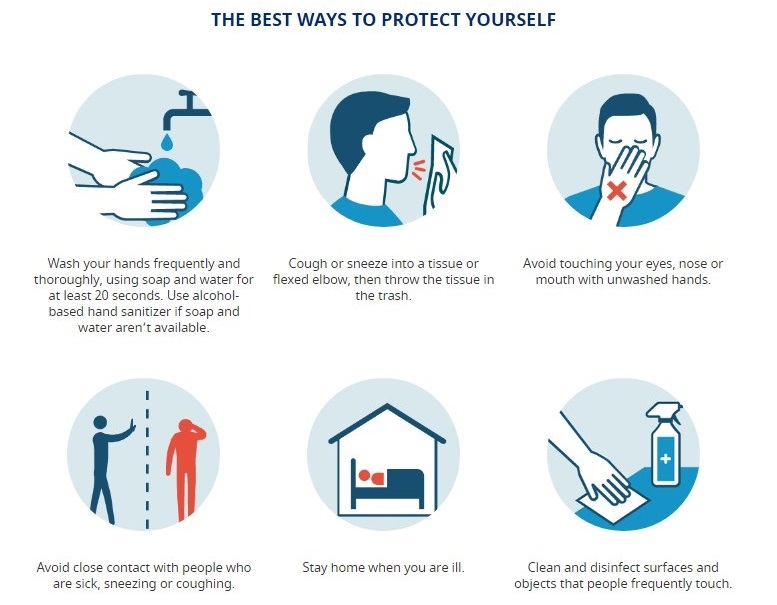
©John Hopkins University
Social distancing is important because COVID-19 most likely spreads from person-to-person contact. Avoid the use of public transportation when possible and travel if only it is essential. Start working from home and avoid social gatherings. This way, you can do your part to help others and the world.
2. Wash your hands more frequently
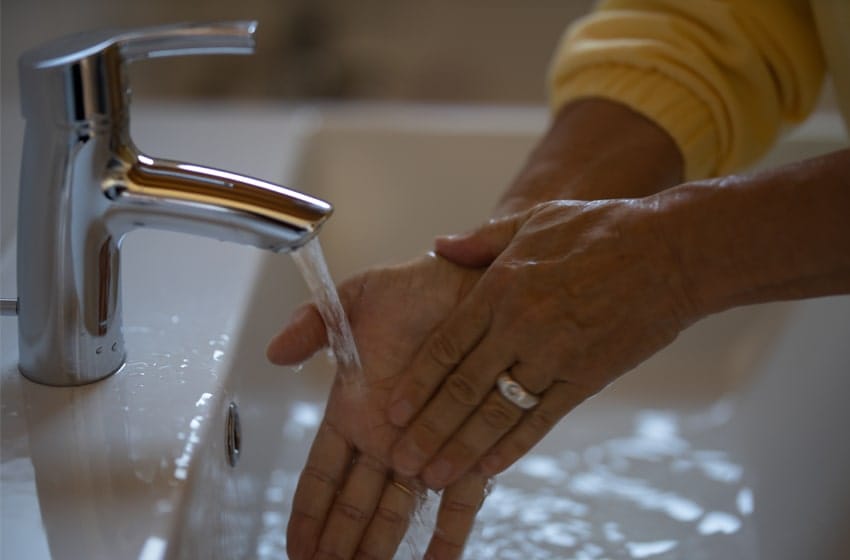
Washing your hands kills viruses that may be on your hands. Clean your hands regularly and thoroughly with soap or alcohol-based hand rubs. It is advised to scrub your hands for at least 20 seconds.
Avoid touching your eyes, nose, and mouth because hands easily pick up viruses from many surfaces. From there, the virus can enter your body and can make you sick.
3. Practice respiratory hygiene
Make sure to follow good respiratory hygiene. This means covering your nose and mouth with bent elbow or tissue whenever you cough or sneeze. Coronavirus usually spreads through droplets. By following good respiratory hygiene, you protect others from cold and flu viruses.
Also read: 5 Meditation Techniques For Beginners
4. Stock up your groceries and medicines
Preparation is the best way to protect yourself and your loved ones. Stock up on groceries, household supplies, and common medicines, just in case. That doesn’t mean you’ll need to eat only certain types of foodstuffs.
Keep in mind, stocking up face masks might do more harm than good. They don’t protect you that much from the virus if you’re healthy. But, they can help prevent the spread if you’re infected.
5. Stay informed and keep yourself updated
Keep yourself informed on the latest developments about COVID-19. National authorities are most likely to have the up to date information. Follow the advice given by your healthcare provider or local health authorities on how to protect yourself from Coronavirus. They are in the best place to advise about what’s happening in your area and what people are doing to protect themselves.
Final Thoughts
Currently, there is no specific treatment for the new coronavirus. If you think you caught the virus, you will need to stay in isolation, away from the people until you have recovered.
We advise you to follow the official public advice/guidelines by the World Health Organization here and stay away from the myths and misleading information.

Hello reader, I’m Abhishek Kumar Shankhwar, a mental health and wellness enthusiast, and a digital marketing specialist by profession. As a passionate health and wellness guide, I’m driven by a purpose to inform, inspire, and positively impact lives through meaningful content. When I’m not immersed in crafting articles, you’ll likely find me exploring human psychology, spirituality, or the mysteries of the universe, experimenting in the kitchen, or reflecting on life’s deeper questions. I’m also part of the team at Dignitas Digital, an award-winning digital agency based in Philadelphia, USA, where we drive brand growth through innovative marketing strategies and tech-forward solutions. Connect with me on LinkedIn to explore potential synergies.

















